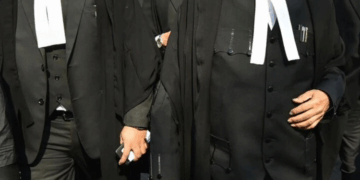By: Aarif Rashid Malik/ Firdous Ahamd Malik
Equality in contemporary society refers to the principles that all individuals, regardless of their gender, race, caste, economic status, or background, should have the same rights, opportunities, and dignity. It is a fundamental human right that seeks to eliminate discrimination and create a level playing field for everyone. In modern times, equality extends beyond legal recognition to social, economic, and digital realms, ensuring fair access to resources, education, and political representation. However, despite progress, systematic barriers and deep-rooted prejudices continue to hinder true equality in many parts of the world.
Historically, societies have struggled with rigid hierarchies based on caste, class, race, and gender. Movements for civil rights, women’s empowerment, and social justice have driven significant change, leading to legal frameworks that promote equality. From the abolition of slavery to universal suffrage and affirmative action, progress has been made. However, disparities persist, requiring ongoing efforts to achieve genuine inclusivity and fairness.
Legal and constitutional safeguards play a crucial role in promoting equality by providing a legal framework to protect individuals from discrimination. In India, the constitution is above caste, gender, religion, or race. Laws such as the scheduled casts and scheduled Tribes (Prevention of Atrocities) Act, the Right to Education Act and the Equal Remuneration Act further strengthens protections for marginalized groups. Similarly, in other countries, anti-discrimination laws, affirmative action policies, and gender equality measures aim to ensure equal opportunities in education, employment, and social welfare.
On a global scale, international human rights frameworks reinforce the commitment to equality. Treaties such as the Universal Declaration of Human Rights (UDHR), THE Convention on the Elimination of All Forms of Discrimination Against Women (CEDAW), and the International Convention on the Elimination of Racial Discrimination (ICERD) guide nations in adopting inclusive policies. These frameworks promote accountability, ensuring that governments uphold human rights and work towards a fairer, more just society.
Economic equality is essential for a just society, yet income disparities remain a major challenge worldwide. Wealth is often concentrated in the hands of a few while marginalized communities struggle with low wages, job insecurity, and limited access to financial resources. Social mobility—the ability of individuals to move up the economic ladder—is often restricted by systematic barriers such as caste, race, and gender-based discrimination. In many developing countries, informal labor, lack of social security, and unequal access to credit further widen the wealth gap, making it difficult for disadvantaged groups to achieve financial stability.
Education and employment opportunities play a crucial role in bridging economic inequality. Quality education equips individuals with skills needed for better job prospects, while inclusive employment policies ensure fair wages and career growth. Government initiatives like scholarships, vocational training, and labor rights protection help uplift underprivileged sections. However, true economic equality requires continued efforts to remove structural barriers and promote policies that ensure fair income distribution and equal opportunities for all.
Gender equality is a fundamental aspect of a just society, yet women continue to face discrimination in various spheres, including education, employment, and political representation. While legal reforms, such as the Right to Equality (Article 14 of the Indian Constitution) and the Convention on the Elimination of All Forms of Discrimination Against Women (CEDAW), have strengthened women’s rights, challenges remain. Women’s participation in leadership roles, wage parity, and safety in public and private spaces are ongoing concerns. Increasing female representation in politics, business, and governance is crucial to ensuring that policies reflect the needs and aspirations of all.
Beyond the binary, gender inclusivity is gaining recognition, acknowledging the rights of transgender, non-binary, and gender-fluid individuals. Many countries have introduced laws to protect LGBTQ+ rights, yet social acceptance and legal recognition remain struggles. Inclusive policies in workshops, education, and healthcare are essential to breaking gender stereotypes and fostering an environment where everyone, regardless of gender identity, ahs equal opportunities and dignity.
Caste and social hierarchies continue to shape societal structures, particularly in India, where the caste system has historically determined access to resources, education, and social status. Despite legal bans on caste discrimination, Dalits, Muslims and other marginalized communities still face social exclusion, economic deprivation, and violence. Similar hierarchical structures exist in other parts of the world, such as racial segregation in the U.S. and class-based discrimination in Europe and Latin America. These systems create deep-rooted inequalities, limiting social mobility and perpetuating generational poverty.
Affirmative action policies, such as caste-based reservation in India and racial quotas in other countries, aim to address historical injustices and provide opportunities for disadvantaged groups .While these measures have increased representation in education and government jobs, challenges remain in ensuring their full effectiveness. Critics argue that reservations benefit only a few within marginalized communities, while others believe that are necessary for long-term social equity. A balanced approach is needed to make affirmative action more inclusive and impactful.
Racial discrimination remains a global issue, affecting individuals’ access to education, employment, and social opportunities. In countries like the United States, systematic racism has led to persistent income gaps, police brutality, and unequal representation. Similarly, ethnic minorities in Europe, Africa, and Asia often face prejudice, segregation, and restricted rights. Historical injustices, such as colonialism and slavery, continue to impact marginalized communities, reinforcing cycles of poverty and exclusion. Even in multicultural societies, unconscious bias and institutional barriers make achieving true racial equality a challenge.
Efforts toward racial justice and inclusion have gained momentum through social movements, legal reforms, and policy changes. Initiatives like affirmative action, anti-discrimination laws, and diversity programs in workplaces and education aim to create equal opportunities. Activism, led by groups such as Black Lives Matter and indigenous rights organizations, has pushed for accountability and systematic change. However, true racial justice requires continuous efforts in education, representation, and policy-making to dismantle deep-seated biases and build a more inclusive society.
Technological and digital equality are crucial in today’s interconnected world, yet the digital divide continues to widen gaps in access to education, employment, and essential services. People in rural areas, economically weaker sections, and marginalized communities often lack access to Smartphone’s, computers, and high-speed internet. This disparity limits their ability to participate in the digital economy, access online education, or benefit from e-governance services. In developing nations, digital exclusion reinforces existing inequalities, making it harder for disadvantaged groups to compete in a technology-driven world.
Social media plays a dual role in promoting and hindering equality. On one hand, it has amplified marginalized voices, spread awareness about social justice, issues and enabled grassroots activism. Movements like # Me Too and #BlackLivesMatter have gained global traction through digital platforms. However, social media can also reinforce inequality by spreading misinformation, deepening echo chambers, and enabling online harassment, particularly against vulnerable communities. Ensuring responsible digital access and literacy is key to bridging this gap.
Inclusive governance is essential for a truly democratic society, ensuring that diverse voices are heard in decision-making processes. Political representation of marginalized groups—such as women, Dalits, indigenous communities, and ethnic minorities—remains limited in many countries due to historical exclusion and systematic barriers. While affirmative policies, such as reserved seats in legislatures and local bodies, have improved representation, challenges like political violence, lack of resources, and social stigma continue to hinder full participation. A government that reflects its diverse population can create policies that address the unique needs of all citizens, leading to more equitable development.
Voting rights and political participations are fundamental to democracy, yet marginalized communities often face obstacles such as voter suppression, lack of awareness, and bureaucratic hurdles. In some regions, discrimination, intimidation, or restrictive laws prevent disadvantaged groups from exercising their right to vote. Strengthening voter education, ensuring free and fair elections, and empowering marginalized communities through leadership programs are crucial steps toward achieving true political equality.
Achieving true equality remains a challenge due to systematic discrimination and bias deeply embedded in institutions, policies, and social norms. Discrimination based on caste, race, gender, and economic status continues to limit opportunities for marginalized communities. Unconscious biases in workplaces, law enforcement, and education create invisible barriers, making it harder for disadvantaged groups to access resources and advance in society. Even when legal frameworks exist to ensure equality, their implementation is often weak, allowing discrimination to persist in suitable but impactful ways.
Another major challenge is resistance to social change, driven by cultural traditions, political interests, and fear of losing privilege. Many societies are slow to accept reforms that promote inclusivity, with opposition to affirmative action, gender equality laws, and policies benefiting marginalized groups. Social movements advocating change often face backlash, misinformation, and institutional pushback. Overcoming these challenges requires continuous awareness, stronger legal enforcement, and a collective effort to shift societal mindsets toward true inclusivity.
The path to a more equal society requires ongoing efforts in policy-making, education, and social awareness. Future prospects for equality depend on stronger legal protections, inclusive economic policies, and technological advancements that bridge gaps in access and opportunity. Governments must continue to refine affirmative action policies, improve access to equality education and healthcare, and ensure fair wages. Additionally, digital inclusivity and representation in leadership roles are crucial to breaking long-standing disparities. As societies evolve, embracing diversity and equity in all spheres will be key to creating sustainable and meaningful progress.
Both individuals and institutions play a critical role in fostering inclusivity. Educational institutions must promote awareness and critical thinking, while businesses should implement fair hiring practices and diversity initiatives. On a personal level, challenging biases, supporting marginalized voices, and advocating for equal rights can drive change. By working collectively, society can move toward a future where equality is not just a principle but a lived reality for all.
Conclusion
Building a truly equitable society requires sustained efforts to eliminate systematic discrimination and create equal opportunities for all. While progress has been made in legal rights, economic inclusion, and political representation, deep-rooted biases and resistance to change still hinder true equality. Social hierarchies, economic disparities, and digital divides continue to limit opportunities for marginalized communities. Governments must implement and enforce stronger policies, institutions should prioritize diversity and fairness, and individuals must actively challenge discrimination in daily life.
Education and awareness play a crucial role in shaping an inclusive mindset, fostering empathy, and breaking societal stereotypes. Social justice movements, inclusive governance, and equitable access to resources are essential for long-term change. True equality will be achieved only when every individual, regardless of caste, gender, race, or economic status, the opportunity to succeed without barriers. By working together, societies can move toward a future where fairness, dignity, and inclusivity become a lived reality for all.
Aarif Rashid Malik (Arifrashid636gmail.com) has Masters in Political Science and Firdous Ahamd Malik is pursuing M. Ed at the University of Kashmir. Artistmalik612gmail.com




